- Home
- Russell Blake
Revenge of the Assassin Page 3
Revenge of the Assassin Read online
Page 3
“I’ll be happy to, but I need to call the owners first and get their permission.”
The officer shook his head. “That’s not what the order says. It says you let us in, now, and shut up until I say it’s all right to call anyone,” the cop explained menacingly.
The leader’s eyes narrowed, and then he shrugged. “Suit yourself. But the owners are very powerful, and they won’t appreciate their property being trampled without any notice. I just work here, but I’m glad I’m not in your shoes.”
“Your concern is noted. Now open up.”
The leader glared at the cop and the soldiers, who had deployed from the trailing vehicles and now had their weapons trained on his men. He sighed, then fished in his pocket for the key to the massive padlock that held the gates closed.
Two hours later, eighteen tons of marijuana had been discovered in two shipping containers at the far end of the storage facility, along with ninety kilos of Mexican heroin and several crates of automatic weapons. The Federales clamped a lid on the bust until they could round up the owners, who were going to jail for a very long time. The guards were charged with being accessories, but the police knew that would be a tough charge to make stick, given that they’d cooperated and the seizure had taken place without bloodshed – an anomaly in the ongoing war against the cartels.
The following week, all four security men were found beheaded, stuffed in the back of an abandoned Chevrolet van on the outskirts of Hermosillo. The leader’s wife, sister, and three children were also found in the vehicle, beaten to death with a tire iron that still bore traces of their blood and hair on it, tossed casually on the floor of the passenger side of the cab. The local papers published lurid photos and made much of the grisly details, but within a few days the incident was forgotten, yet another in an endless parade of cartel violence that showed no signs of abating, regardless of the government’s rhetoric to the contrary.
Chapter 2
The president’s security team was in place hours ahead of time in Tampico, where he was scheduled to make an appearance at a local hospital. It had been a lousy week for his entourage, as the president had insisted in venturing out of Mexico City to show that he was a man of the people, unafraid to visit his constituents.
It would be a welcome break from the bureaucratic grind that was his typical fare. The burdens of running Mexico were considerable, especially having only taken office a few short months before, during a time of upheaval. Infighting from political foes, the routine duties of being a head of state, jockeying to compromise on the host of campaign promises he had no ability or intention of keeping – all added up to a momentous pressure load, but one he gladly shouldered.
The exiting administration had looted the country’s coffers, as had each administration before it, so one of the most pressing items he had to deal with was rebuilding the nation’s finances. This was problematic, as the windfall staple that had been responsible for much of the country’s prosperity was becoming harder to pump out of the ground – or sea, in this case. Once flush with oil revenues, over the past years the amount of energy required to extract a barrel of oil had skyrocketed as the oil fields matured and the low-hanging fruit had been picked, demanding ever greater effort for each subsequent year’s production. Simply put; in the past, a field would yield a hundred barrels of oil for one barrel’s worth of energy to extract them. Now they were lucky to see four barrels to one. To make matters worse, Mexico’s internal consumption had almost reached the point where it wouldn’t have any oil left to export within a few years – one of its largest sources of revenue.
His other overwhelming problem was that the U.S. wanted Mexico to fight its war on drugs by pursuing the cartels at every turn, and it paid substantial foreign aid to Mexico in order to continue the nation’s criminalization of trafficking. The reality was that drugs were largely decriminalized within Mexico, and the population consumed them at whatever rate it felt like, without much fanfare or violence. Measures had been floated numerous times to make them legal, in an attempt to end the unprecedented violence that had accompanied the rise of trafficking by the Mexican cartels, when they’d taken over from the Colombians as the transportation arm of that nation’s enterprise.
The president’s security detail was chartered with performing advance reconnaissance of any area he would be visiting, and today he was scheduled to first fly from Mexico City to be at a new social security hospital to cut the ribbon in Tampico, and then jet to Guadalajara to spend an hour at an orphanage. Both events were photo ops, nothing more, but much of the role of being president involved kissing babies and feigning interest in the mundane. Nonetheless, the challenges involved with safeguarding him in an environment of constant danger and violence were significant, and the men chartered with doing so were professionals of the highest caliber.
Once the day was done, the plan was to fly into Durango before dark for a few days of relaxation at a massive ranch the president’s family owned. As with all presidential visits there, a helicopter would wing the president to the rural compound, bypassing any travel on roads. The highways were too much of a question mark, even with a massive military presence, so whenever possible the president eschewed motorcades in favor of air travel. The security detail tried to keep his arrival low-key, however that was generally impossible, and by evening the airport would be temporarily closed down and ringed with army troops to discourage any sort of an attack.
Major Luis Cena headed up the group of special forces troops assigned to presidential protection duty – the most prestigious posting in the nation, and one that carried with it significant pressure. He preferred when the president remained in Mexico City under rigorously controlled conditions, and hated these junkets for the risk they posed.
He was agitated this morning because the route from the airport in Tampico to the hospital was riddled with security problems, which he was handling to the best of his abilities but which introduced substantial uncontrollable variables. The president would be there within a half hour, and even after posting men along the way and closing off the streets, he was apprehensive. The president’s new offensive against the cartels had caused consternation at the highest levels and retaliation was a given.
Tampico was a problem area due to the high concentration of cartel cells in the region – always the case around any of the ports where drugs could be smuggled in and distributed. Cena had argued against the foray to the hospital, but the new president was still trying to earn the support of the people even though the campaign had been won – a fool’s errand, and a dangerous one, Cena thought.
Still, his job wasn’t to second guess the boss, but to protect him, which is why he was in crisis mode. It was days like today that drove him crazy. Not one, but three visits, all of which had to be viewed as very real brushes with danger for a man who acted as though the whole world loved him.
The short-hop presidential jet touched down at General Francisco J. Mina International Airport amidst a stoppage of flights for half an hour, in order to accommodate the entourage and security precautions. As the Gulfstream III rolled to a stop at the far end of the runway and taxied to a secure area, it was circled by army vehicles. Cena quickly deployed his men, who formed a protective perimeter. A fleet of gold-toned armored Chevrolet Suburbans waited, and when the stairs lowered from the plane’s fuselage, the security detail notably bristled. Traffic on all roads approaching the airport had been stopped with roadblocks, as had the frontage access-way, to reduce any likelihood of attack. A small group of specially selected reporters obligingly took photographs as the president descended the steps, waving to a non-existent crowd for the cameras.
Cena’s six plainclothes bodyguards surrounded the president as he made his way from the plane to his motorcade, and they moved cautiously to the waiting vehicles. The five Suburbans sat alongside six military Humvees, Cena’s men manning the heavy machine guns mounted just behind the roofs. In Mexico, there was no pretense of civility when it came to
law enforcement – the sight of heavily-armed soldiers in combat readiness was a daily occurrence and drew no raised eyebrows. The reporters crammed into the last SUV, and the convoy was ready for departure.
Cena exhaled a sigh of relief as he climbed into the lead vehicle and gave the signal to get underway. At the airport security gate, six motorcycle police and three Federal Police trucks joined the convoy and took the lead, with another two bringing up the rear for the four mile drive to the new hospital.
The vehicles wound their way from the centrally-located airport along a pre-planned route to the hospital. Unfortunately, braving the city streets was the only way to reach the site. Normally, the president would have taken a helicopter, but there was no available area to land in the limited parking area adjacent to the hospital without inviting a rocket attack from one of the surrounding buildings, which had been deemed an unacceptable risk. To make matters more difficult, a large crowd had gathered there, along with another group of reporters. It was free entertainment, and the president didn’t visit every day. Even though everyone in the vicinity had been searched as a condition of attending the momentous event, Cena still was nervous. He hated crowds because of the potential variables that came with them.
Twelve minutes after departing the airport, they arrived without incident at the large, new medical facility. The governor of Tampico stood beaming, waiting for his ally, the president, to make his way to the ceremonial ribbon. The city’s mayor and a host of minor dignitaries also stood patiently by, insistent on being proximate to the seat of power. The governor had been a strong supporter of the president’s election campaign, and was an old friend, which accounted for the visit. Chits had to be paid, and it was questionable whether the president could have carried the election had it not been for Tampico. Normally, a hospital opening wouldn’t have rated his time, but the party had developed a strong bed of support in the state, and it never hurt to solidify sentiment. There was always the next election to consider.
The governor shook hands with the president, and then gave him a warm hug. After greetings were exchanged, the speeches began, promising a new era of prosperity and national pride. There were no surprises, and forty minutes after the ceremony had begun, it was over. Ripples of applause followed the waving of the dignitaries as they hastened to depart, their media circus having come to an end.
Cena’s precautions had paid off. The president was still alive and ready for the flight to Guadalajara for his afternoon appearance. The entourage moved back to the cars, and the motorcade prepared for the return trip. Cena radioed ahead to alert the waiting commandos to prepare for their passage back.
~
Juan Ramon was sweating, even though the temperature was moderate and a breeze blew through his partially open window. He peered at the roofs of the buildings that were forty yards in front of his dingy apartment complex, noting that the soldiers lining the sidewalk had stiffened within the last few minutes, presumably in anticipation of the return of the president’s motorcade. He’d watched as it had made its way down the two lane street on its way to the hospital, noting the number of Suburbans.
A warble interrupted his thoughts – he snatched the cell phone from the table by the window.
“Yes.”
“He left in the second car, but it looked like they switched the order once they were out of the parking lot, so it could now be the fourth,” the voice reported, sounding harried.
“What? How the hell is that supposed to help me? It’s one or the other. Think, man. Which is it? Second or fourth?” Juan Ramon seethed into the phone.
“I don’t know. Like I said, they did some shuffling in the staging area, and I couldn’t see from so far away. Too much of a crowd, and the security looked like it was on unusually high alert.”
“You know what happens if we screw this up.”
“I know. I’d say go with the fourth truck. That’s my best guess. They left exactly ninety seconds ago. Should be within range in three minutes,” the voice advised.
“Your best guess? Fine. It’s your funeral if your guess is wrong,” Juan Ramon warned, then hung up. He checked his watch, then slid the small, black plastic radio transmitter nearer to the window sill. He raised a pair of camouflage binoculars to his eyes and watched for the first motorcycles. The timing would be easy, but the ambiguity over the target’s position within the convoy was a problem.
~
Cena’s buzz of agitation hadn’t diminished since they’d left the hospital. If anything, it had grown worse. There had been warning indicators that the cartels were unhappy with the president’s aggressive offensive against them since taking office, and this was one of the first expeditions from the capital since he’d been inaugurated. Perhaps it was professional paranoia, but Cena had the sense that something was brewing, and he felt out of control, even though nothing had occurred.
So far.
They rounded a curve onto the primary thoroughfare through town, and Cena studied the myriad buildings along the route. The Suburbans had bulletproof glass and armor plating, so any danger from a sniper was moot. The president was in far more danger when he’d been standing in the open than in the SUV. At least that part of the ordeal had gone off without incident.
The blast as the storefront exploded tore through the line of vehicles – the third and fourth Chevrolets flipped over from the force, their armor providing slim protection against six mounds of Semtex coated in three-quarter inch steel ball-bearings – the claymore mine-like bombs favored by the cartels. Once the orange eruption had done its work and the trucks were immobilized, an anti-tank rocket streaked from an apartment window four hundred yards away, the laser guidance system directing it unerringly to its target. The Suburban exploded in a fireball, and it was several seconds before the surviving detail opened fire on the apartment, directing a barrage of bullets at the already vacated window.
Smoke and fire belched from the devastated truck, and sirens wailed through the downtown as emergency vehicles raced to contend with the effects of the attack.
Juan Ramon was two miles away by the time the special forces commandos stormed his building, motoring towards the edge of town on his motorcycle, the pizza delivery box on the back rendering him anonymous as the army clamped down on the area in a vain attempt at containment.
The evening news reported that thirty-seven lives had been lost in the savage attack, including six reporters, a host of soldiers and police, and four of the president’s elite personal guard. Fortunately, the president had escaped unharmed, the explosion having narrowly missed his vehicle at the front of the motorcade.
All public appearances were cancelled until further notice, pending a full investigation. Cena was out of the hospital within a week, the damage to his left arm and part of his face requiring two additional surgeries over the next three months, but the prognosis for a full recovery good.
Juan Ramon disappeared shortly thereafter, never to be heard from again.
Chapter 3
Spring in Argentina was mild, the days warm and the nights only somewhat chilly, at least in Mendoza. Sometimes the wind would blow from the towering Andes mountains down into the valley and make things unseasonably miserable, but thankfully this year there had been none of these unexpected surprises. Seasons in South America, like in Australia, were the reverse of the northern hemisphere, so April was in reality autumn for the region, which enjoyed a kind of Indian summer during that period, before plunging into a cold and snowing summer.
The young man pulled his pea coat around him as he made his way past the small markets and cafés on one of the main arteries, stopping at his favorite to buy coffee and a breakfast roll. Groups of high school students loitered across the street, smoking and talking loudly as they waited for their classes to begin. Leaves blew down the sidewalks and into the deep storm drains that bordered every street, acting as a kind of informal network of tunnels for the region’s stray dogs. The man paid the smiling cashier and shouldered past th
e line of waiting patrons, all in a hurry to eat and run, the business day about to start for the offices around the stock exchange building, to be followed a few hours later by the retail shops at the street level.
He passed in front of the Park Hyatt hotel and meandered through the large park that was a central feature of the downtown tourist area. Groups of Rastafarian-inspired hippies were laying out blankets on the sidewalks of the park to display their handcrafted wares, consisting mostly of leather wallets and beaded necklaces, with the ever popular multi-colored friendship bracelets a staple. An odor of marijuana lingered over the bunch, and the man hurried past them lest one try to engage him in conversation.
The park denizens were largely friendly and cheerful, in spite of their living in near poverty conditions in a nation that was bankrupt fifteen times over. The papers were predicting more power shortages and gas rationing for the year, and the unofficial exchange rate put domestic inflation at twenty-five percent, even as the government number was more like three. Nobody took the official utterances seriously, just as nobody took the tax system seriously. If a small business didn’t cheat early and often, it wouldn’t be in operation for very long. The official tax rate was so high that it rendered most types of commerce impractical, creating a booming secondary economy that operated on an all-cash basis.
The man took in the grandiose buildings of the downtown pedestrian promenade as he sipped his coffee. Mendoza was an odd town – strangely prosperous due to the surge in demand for the region’s excellent wine, while the rest of the nation languished, but with a frailty just below the surface that was uniquely Argentine. Nobody believed that lasting prosperity was possible, which was a direct function of the looting of the country for decades, culminating in the 2002 financial collapse that wiped out much of the nation’s middle class and gutted its economy.

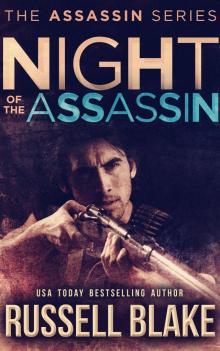 Night of the Assassin
Night of the Assassin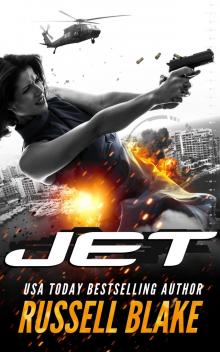 Jet
Jet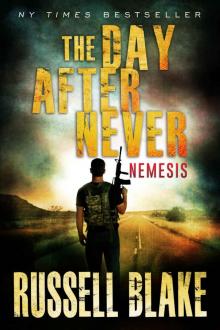 The Day After Never - Nemesis (Post-Apocalyptic Dystopian Thriller - Book 9)
The Day After Never - Nemesis (Post-Apocalyptic Dystopian Thriller - Book 9)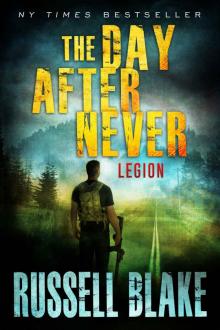 The Day After Never - Legion (Post-Apocalyptic Dystopian Thriller - Book 8)
The Day After Never - Legion (Post-Apocalyptic Dystopian Thriller - Book 8)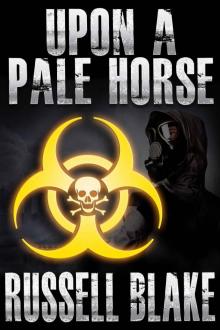 Upon A Pale Horse (Bio-Thriller)
Upon A Pale Horse (Bio-Thriller)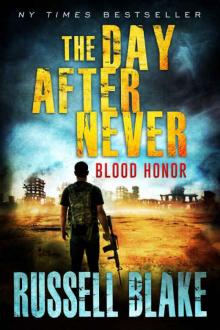 The Day After Never (Book 1): Blood Honor
The Day After Never (Book 1): Blood Honor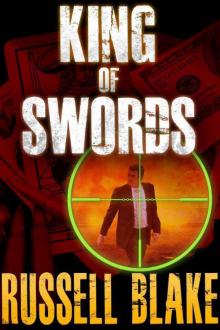 King of Swords a-1
King of Swords a-1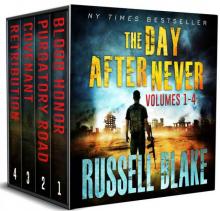 The Day After Never Bundle (First 4 novels)
The Day After Never Bundle (First 4 novels)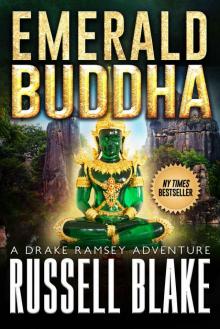 Emerald Buddha (Drake Ramsey Book 2)
Emerald Buddha (Drake Ramsey Book 2)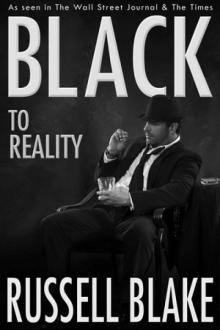 BLACK to Reality
BLACK to Reality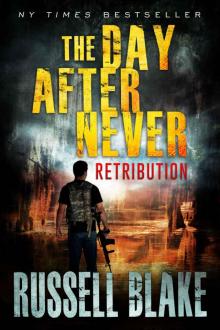 The Day After Never - Retribution (Post-Apocalyptic Dystopian Thriller - Book 4)
The Day After Never - Retribution (Post-Apocalyptic Dystopian Thriller - Book 4)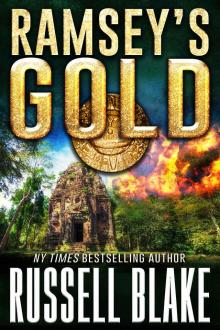 Ramsey's Gold (Drake Ramsey Book 1)
Ramsey's Gold (Drake Ramsey Book 1)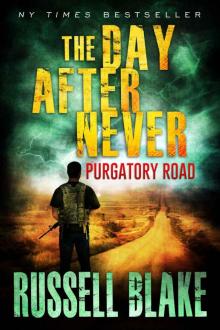 The Day After Never (Book 2): Purgatory Road
The Day After Never (Book 2): Purgatory Road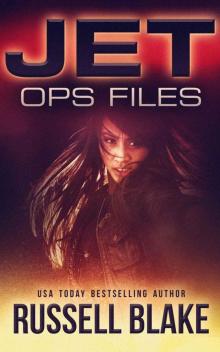 JET - Ops Files
JET - Ops Files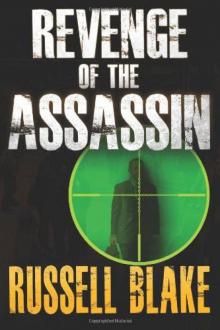 Revenge of the Assassin a-2
Revenge of the Assassin a-2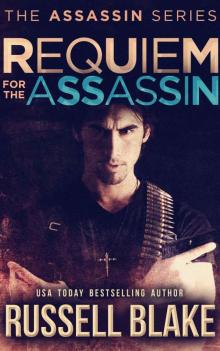 Requiem for the Assassin - 06
Requiem for the Assassin - 06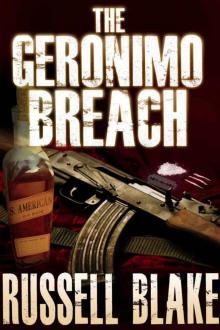 The Geronimo Breach
The Geronimo Breach Sahara
Sahara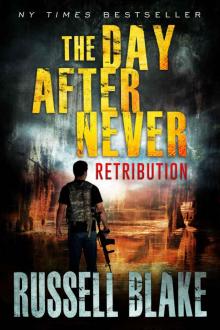 The Day After Never (Book 4): Retribution
The Day After Never (Book 4): Retribution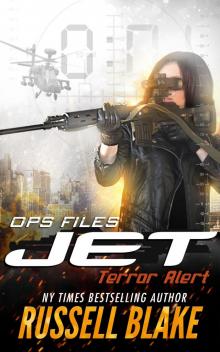 Ops Files II--Terror Alert
Ops Files II--Terror Alert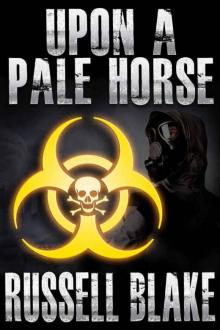 Upon A Pale Horse
Upon A Pale Horse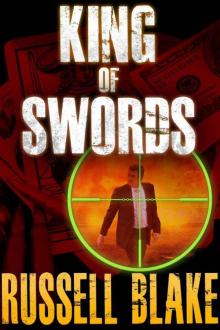 King of Swords (Assassin series #1)
King of Swords (Assassin series #1) A Girl Apart
A Girl Apart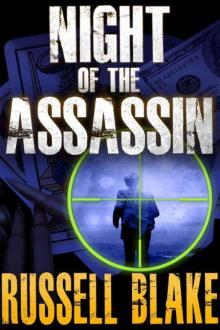 Night of the Assassin: Assassin Series Prequel
Night of the Assassin: Assassin Series Prequel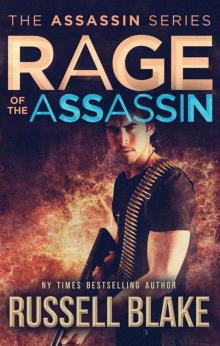 Rage Of The Assassin
Rage Of The Assassin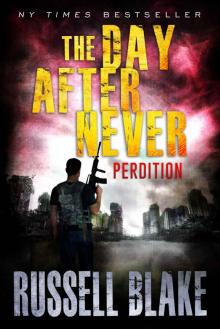 The Day After Never - Perdition (Book 6)
The Day After Never - Perdition (Book 6)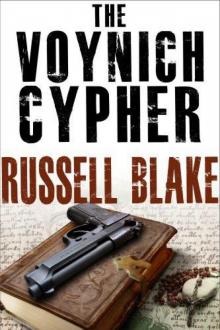 The Voynich Cypher
The Voynich Cypher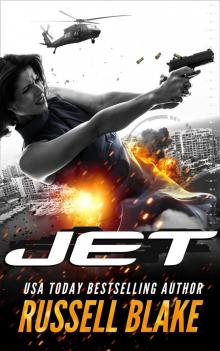 JET, no. 3
JET, no. 3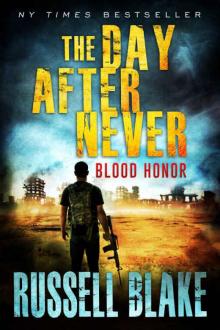 The Day After Never - Blood Honor (Post-Apocalyptic Dystopian Thriller)
The Day After Never - Blood Honor (Post-Apocalyptic Dystopian Thriller)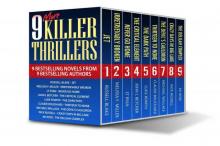 9 More Killer Thrillers
9 More Killer Thrillers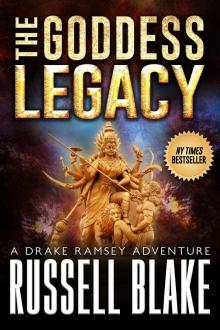 The Goddess Legacy
The Goddess Legacy Fatal Exchange
Fatal Exchange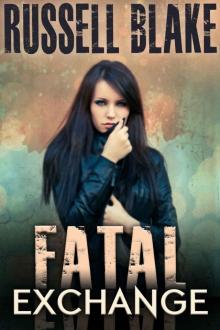 Fatal Exchange (Fatal Series Book 1)
Fatal Exchange (Fatal Series Book 1)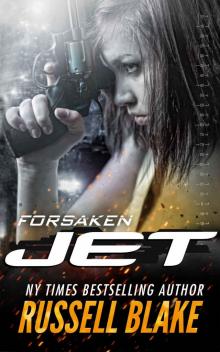 JET - Forsaken
JET - Forsaken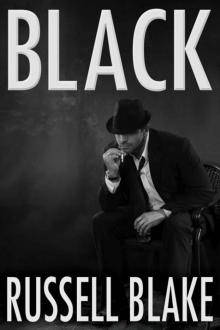 Black
Black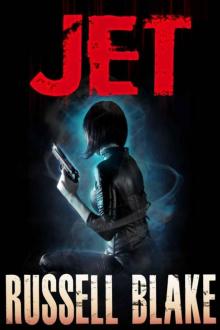 Jet j-1
Jet j-1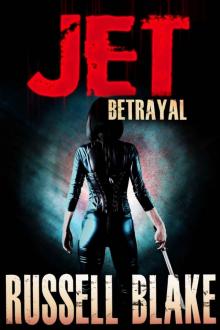 Betrayal j-2
Betrayal j-2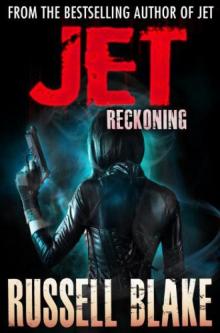 Jet 04: Reckoning
Jet 04: Reckoning Jet 03: Vengeance
Jet 03: Vengeance Fatal Deception
Fatal Deception A Girl Betrayed (A Leah Mason suspense thriller Book 2)
A Girl Betrayed (A Leah Mason suspense thriller Book 2)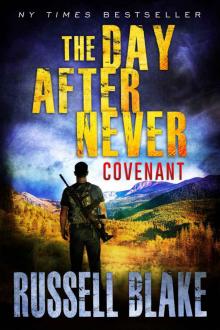 The Day After Never - Covenant (Post-Apocalyptic Dystopian Thriller - Book 3)
The Day After Never - Covenant (Post-Apocalyptic Dystopian Thriller - Book 3)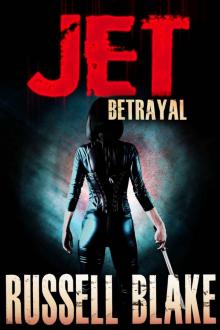 JET II - Betrayal (JET #2)
JET II - Betrayal (JET #2)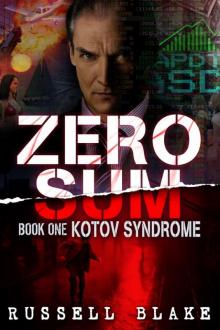 Zero Sum, Book One, Kotov Syndrome
Zero Sum, Book One, Kotov Syndrome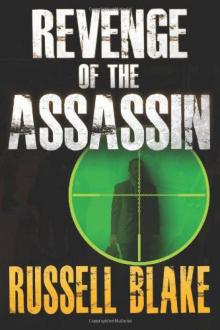 Revenge of the Assassin
Revenge of the Assassin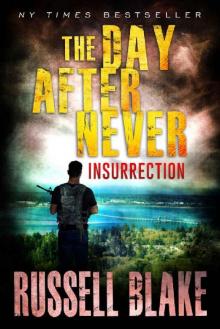 The Day After Never - Insurrection (Book 5)
The Day After Never - Insurrection (Book 5)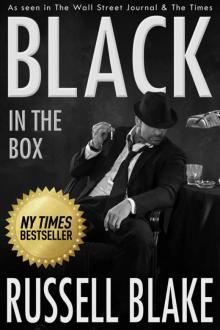 BLACK in the Box
BLACK in the Box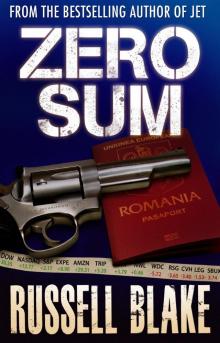 Zero Sum
Zero Sum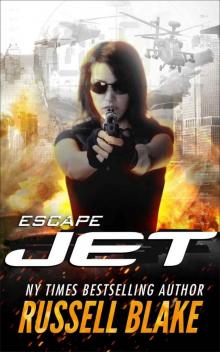 JET - Escape: (Volume 9)
JET - Escape: (Volume 9)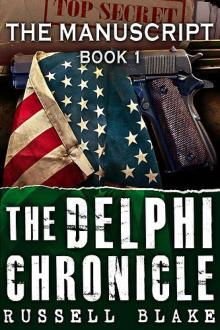 The Manuscript
The Manuscript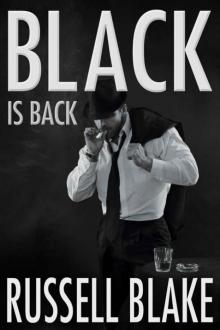 BLACK Is Back
BLACK Is Back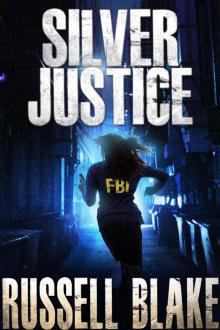 Silver Justice
Silver Justice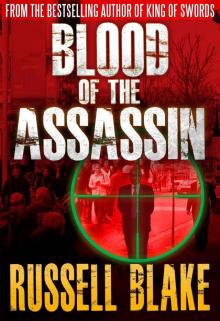 Blood of the Assassin
Blood of the Assassin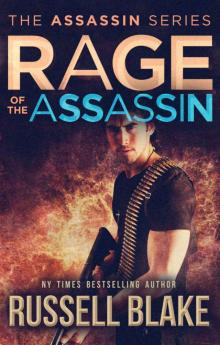 Rage of the Assassin: (Assassin Series #6)
Rage of the Assassin: (Assassin Series #6)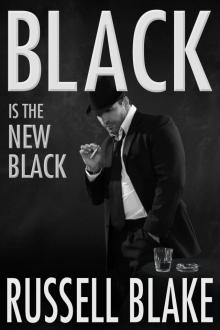 BLACK Is the New Black
BLACK Is the New Black